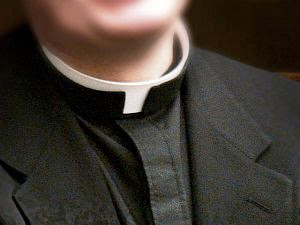
I turned the corner on my tour of the gross anatomy lab at UB's med school and there he was: a nude cadaver on a slab of steel in the back. He was an older man, a bit chubby, bearded and peaceful. I was less afraid than I thought I would be and after attending the student's human gross anatomy memorial service, I was almost eager to head to the lab to see how someone like me could be of service to the students.
We talk a lot about how death holds no power over us as Catholics. We believe that Jesus indeed defeats death and opens eternal life for all of humanity with his passion, death and resurrection. But I do think that perhaps even our bodies might be able to transcend death, contributing to life even beyond our physical death.
Students talked about how they began touching the bodies almost fearfully, making that first cut anxiously before learning so much about every part of the body. For some it is a frightening experience and I'm sure some call it quits, realizing that they don't have the stomach for medicine.
Others have a different experience: gratitude. The people who offer their body to the school have indeed given a great gift and perhaps it's one that they are not all that comfortable with when they make the decision to do it. After all, their families can no longer touch and feel and experience being touched by them anymore. Why should someone else have that privilege? A daughter of a patient in a letter to the students mentioned her mother being uncomfortable with certain parts of her body and now they were all on display for some stranger to probe.
The students are impressive. Cadavers get named, perhaps not their own names, but the desire to interact with these people is strong and far from disrespectful.
Many of my colleagues and I have talked about where we'd like to be buried, or perhaps we'd prefer cremation. Another expressed a desire to be returned to the earth as soon as possible, so he could start contributing to the growth of the earth once again.
"Let those worms get at me!" he roared as the rest of us squirmed and I nearly lost my pasta.
Another sat quietly, eating his dinner over this unappetizing dinner conversation. We finally had to ask him directly,
"John, what would you like to happen with your body?"
He looked at us blankly and said without blinking an eye:
"I don't give a crap what you do with my body--I'll be dead!"
And that is more of where I fall on the matter of the subject as well. I don't really care.
What I do care about is that someone remembers me as an altruistic person, someone who cared about life and who cared for students and other young adults and who loved his family and his church. Perhaps my letter will be read at one of these memorial services one day and I will be able to cheat death just one final time, living beyond that final breath, giving to another even when my heart ceases beating, healing the anxiousness of a newbie med student who needs to be able to touch me so that he or she may touch another and bring healing, cures and hope to others.
Let us pray for those who have given the gift of death, the gift of what we often think of as a useless dead body to students. May they be remembered for their altruism and for their love of education. I love that idea.
And it sure beats the worms.







